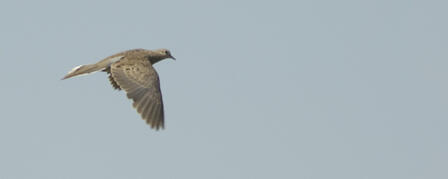KDWPT COMMISSION APPROVES REGULATIONS

July 4, 2012
Early teal season dates, public land regulations highlight meeting
KANSAS CITY — At a June 24 meeting in Kansas City, the Kansas Wildlife, Parks and Tourism Commission approved regulations dealing with hunting deer, migratory birds, and upland game, as well as hunting on public land. The following issues were addressed in regulations:
Deer
- Any person with a deer permit valid during the archery deer season in deer management units 1, 12, 15, and 19 may use a crossbow during deer archery season, regardless of age or disability. Each person age 16 through 54 shall obtain a free crossbow hunter survey number from the Kansas Department of Wildlife, Parks and Tourism before hunting with a crossbow during archery season.Fort Riley deer season set: archery, Sept. 1-Dec. 31 and Jan. 14-31, 2013; youth/disabled, Sept. 8-16 and Oct. 5-8; and firearms, Nov. 23-25 and Dec. 15-23 and Jan. 19-21, 2013.
Migratory Birds
- Doves may only be taken while in flight.
- Early teal season will run 16 days from Sept. 8-23 in the Low Plains Zone (east of U.S. Highway 283) and nine days from Sept. 15-23 in the High Plains Zone (west of U.S. 283).
- Sandhill crane shooting hours are now sunrise to sunset throughout the season, which runs Nov. 7-Jan. 3, 2013.
Upland Game
- Prairie chicken hunters must purchase a $2.50 prairie chicken permit before harvesting a bird this fall. A random sample of permit holders will receive a questionnaire after the season to assess their hunting activity and success. The early season in the East and Northwest units will run Sept. 15-Oct. 15. The East and Northwest unit regular season will run Nov. 17-Jan. 31, 2013, and the Southwest Unit season will run Nov. 17-Dec. 31.
Public Lands
- Commercial guides must have a permit to guide on public lands. The permit is free and must be specific to the land where guiding takes place.
- Baiting is illegal on public lands. Bait is considered any grain, fruit, vegetable, nut, hay, salt, sorghum, feed, or other food or mineral capable of attracting wildlife. Liquid scents and sprays are not considered bait.
- Only two portable blinds or tree stands are allowed per hunter on public lands.
- Portable blinds and tree stands must be marked with the owner’s name and address or KDWPT number. Portable blinds may not be left unattended overnight on public lands.
- Decoys may not be left unattended overnight on public lands.
The commission also passed a regulation to continue the moratorium on commercial harvest of mussels for 10 years.
-30-









